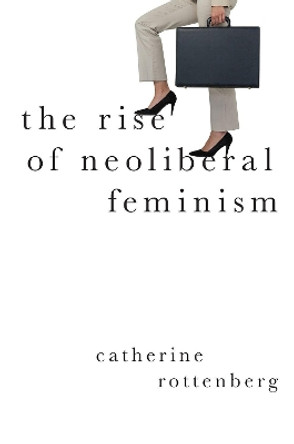Description
About the Author
Catherine Rottenberg is Marie Sklodowska-Curie Visiting Professor in the Department of Sociology at Goldsmiths, University of London, as well as Senior Lecturer in the Department of Foreign Literatures and Linguistics and the Gender Studies Program at Ben-Gurion University. She is the author of Performing Americanness: Race, Class and Gender in Modern African- and Jewish- American Literature and Black Harlem and the Jewish Lower East Side.
Reviews
In this accessible, fascinating book, Rottenberg brilliantly captures the contemporary discursive politics of feminism. This text should be widely read. * D. J. Mattingly, San Diego State University, CHOICE *
[Rottenberg] imbue[s] the analysis with acuity and wit... For a relatively short book, there's a lot in The Rise of Neoliberal Feminism. * Times Higher Education *
Written with energetic sparkling prose and great erudition, Catherine Rottenberg displays a capacious knowledge of all the recent twists and turns in popular presentations of feminism. This is exactly the book we need now to grapple with a neoliberal rationality working to undermine feminist resistance to the worsening situation of the majority of women, while clearing pathways for a passionate return to dynamic feminist dialogue and creative, all-embracing feminist practices. * Lynne Segal, author of Radical Happiness: Moments of Collective Joy *
An incisive critical intervention. * Rosalind Gill, author of Gender and the Media *
Catherine Rottenberg has created an indispensable resource for those working in feminist theory, media studies, cultural studies and communication. Incisively critiquing a new, highly visible version of feminism, Rottenberg demonstrates through careful analysis and theoretical rigor that feminist messages of having it all and leaning in need to be carefully interrogated for who, and what, these messages and practices exclude. In a popular and media context where feminist messages abound and circulate with ease and alacrity, Rottenbergs voice is a crucial caution for all of us about the limitations of neoliberal feminism, as well as an urgent call to reclaim feminism as a social justice movement. * Sarah Banet-Weiser, Professor, author of Empowered: Popular Feminism and Popular Misogyny *
This is a remarkable and important book demonstrating with fine attention to detail the ways in which feminism has found itself appropriated and seemingly comfortably installed as part of the neoliberalization process to complement and indeed motivate women in work and family life. In a wonderfully well-written account, Rottenberg unsettles the terms and conditions which underpin neoliberal feminism. * Angela McRobbie, author of The Aftermath of Feminism: Gender, Culture and Social Change *
Written with energetic, sparkling prose and great erudition, Catherine Rottenberg displays a capacious knowledge of all the recent twists and turns in popular presentations of feminism. This is exactly the book we need now to grapple with a neoliberal rationality working to undermine feminist resistance to the worsening situation of the majority of women, while clearing pathways for a passionate return to dynamic feminist dialogue and creative, all-embracing feminist practices. * Lynne Segal, author of Radical Happiness: Moments of Collective Joy *
"For a relatively short book, there is a lot in The Rise of Neoliberal Feminism. Rottenberg turns her analytical eye to a range of cultural products, from the "have it all" privileged musings of Ivanka Trump to "mommy blogs" and popular TV shows such as CBS' The Good Wife and the Danish series Borgen, in which it becomes painfully apparent that in order to maintain the moral high ground in the future, "Brigitte will have to do a better job balancing family and work." It is an all too familiar pattern." - Emma Rees Times Higher Education
Awards
Winner of Popular Culture Association Emily Toth Award Honorable Mention.
Book Information
ISBN 9780190901226
Author Catherine Rottenberg
Format Hardback
Page Count 264
Imprint Oxford University Press Inc
Publisher Oxford University Press Inc
Dimensions(mm) 150mm * 211mm * 20mm







